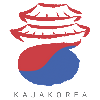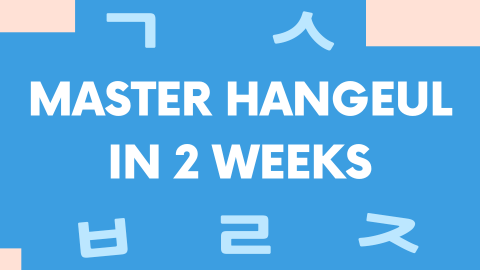Korean Lessons ᚛ Level 3 - Korean for Beginners #2 (Lessons 61 to 90) ᚛ Lesson 86 - Suggestion and intention in Korean [-(으)ㄹ래(요)]
Suggestion and intention in Korean [-(으)ㄹ래(요)]
In this chapter, we're going to talk about the ending -(으)ㄹ래(요), useful in several situations:
- Make a suggestion to someone
- Make a request to someone
- Express that one has the intention of doing
This structure attaches to a verb in the following manner:
- In the casual style: [Stem + modifier -(으)ㄹ]래?
- In the polite style: [Stem + modifier -(으)ㄹ]래요?
Review: modifier -(으)ㄹ
This form is not used in formal situations. Instead, a question is asked in the usual way using the form with -(스)ㅂ니까? or -(으)시겠습니까?
Make a suggestion
The -(으)ㄹ래(요) ending is often used to make a suggestion to someone, to ask the listener if he/she wants to do something.
We saw the form with -(으)ㄹ까(요), which also allows one to make a suggestion, in the previous chapter. However, with -(으)ㄹ래(요), the speaker isn't necessarily included in the suggestion, even if he or she could be included. In ambiguous cases, 같이 or 함께 (= together) can be added to the question.
저녁밥으로 중국집에 갈래요?
→ Shall we go to the Chinese restaurant for dinner?
점심은 배달 주문해서 먹을래?
→ For lunch, should we order delivery to eat?
조금 더 드실래요?
→ Would you like to eat a little more?
오늘 학교 끝나고 우리 집에 올래?
→ Do you want to come to my place after school today? (Lit: Today, school ends and you will come to my place?)
여기 잠시 앉으실래요?
→ Would you like to sit here for a minute?
Note: Fans of Korean dramas know the following very informal phrase quite well:
죽을래!?
→ You want to die!?
Make a request
Learn more
Express intention
It is possible to use the -(으)ㄹ래(요) ending in declarative sentences in the first person in order to express the intention to do something.
In this case, the meaning is similar to that of the structure -(으)ㄹ게(요) seen in a previous chapter, however -(으)ㄹ게(요) gives more of the idea of a promise made to someone, while the -(으)ㄹ래(요) structure represents an intention made for ourselves.
저도 거기 갈래요.
→ I'll go there too.
배가 너무 불러서 좀 걸을래.
→ Since my belly is too full, I'm going to walk a little.
저녁 먹고 운동할래요.
→ I’ll exercise after dinner.
이 책 읽을래.
→ I’ll read this book.
저는 떡볶이를 먹을래요.
→ I’ll eat a tteokbokki.
전 그 시계를 살래요.
→ I’ll buy the watch.
Summary table of structure
Learn more
Exercises
Learn more
For anyone who wants to learn Korean, mastering Hangeul, the Korean writing system, is an essential step. However, truly understanding how these new characters are used, their real pronunciation, how they function within words, and above all remembering them well enough to read fluently in the long term is often a difficult task for Korean learners.
Master Hangeul in 2 Weeks is a 14-day program in which you learn, day after day, all the secrets of Korean characters so that you can master them and never forget them again. Each day, you discover Hangeul through comprehensive lessons and a wide range of reading and writing exercises. An unlimited online training mode allows you to practice as much as you want until you reach excellence.
Learn more

